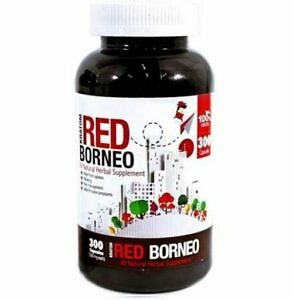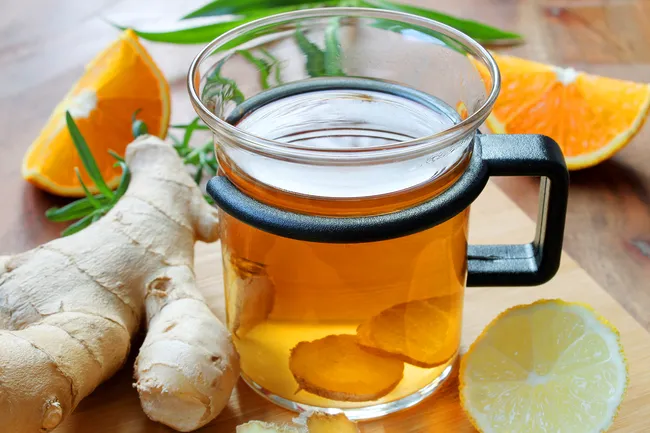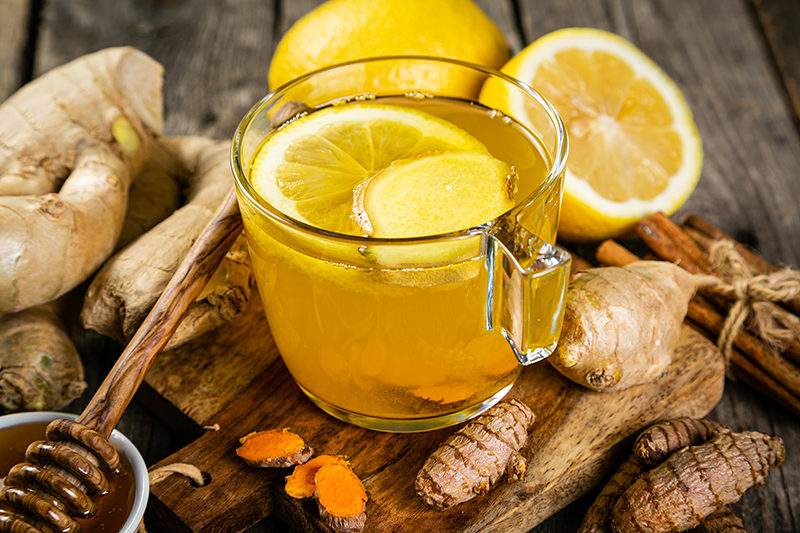Ginger originated in Southeast Asia right alongside kratom. It quickly became a favored spice for recipes and a medicinal herb. If you ask a naturopathic physician about the healthiest plants on Earth, most will quickly list the flowering plant of ginger as one of the leaders. The amazing spice has gained world recognition and becomes a popular herbal supplement in recent years.
Table of Contents
Ginger the Spice
The spice ginger is obtained from a flowering plant that belongs in the Zingiberaceae family. It is closely related to galangal, cardamom, and turmeric. Most people consider it one of the most delicious and versatile spices in the world. Ginger is obtained from the root or rhizome of the plant which is why it is referred to as the root. When you shop for it, you’ll find it as an oil, juice, fresh, dried, or powdered. It’s not only added to recipes but also cosmetics and processed foods.
History of Ginger
The history of root goes back centuries. It has been used in both traditional and alternative medicine for everything from digestion to fighting the common cold. One of the things that stands out about ginger is its tell-tale smell and flavor which are enhanced by the herb’s natural oils, the most prominent of which is gingerol. A bioactive compound, ginger has potent anti-inflammatory properties combined with antioxidant capabilities. Many believe it helps reduce oxidative stress and lower the number of free radicals in the body.
Ginger and Pregnancy
If you are a woman who has ever been pregnant then you are probably familiar with ginger. Sometimes sipping a glass of ginger ale is the only thing that eases the nausea of the first trimester of pregnancy.. In many studies, as little as 1.1 to 1.5 grams of the root reduced nausea caused by morning sickness during pregnancy. It also reduces vomiting from chemo-related nausea in some patients.
Most consider the root safe for pregnant women. However, as the pregnancy progresses many physicians will suggest avoiding the spice as a precautionary step.
Ginger for Weight Loss
Recent studies have found that the herbal root might help with weight loss. In one 2019 study, supplementing your diet with ginger reduced body weight, especially in the waist to hip ratio. It might also reduce body mass index (BMI) and lower blood insulin levels. Normally, high blood insulin has a direct correlation with obesity but study participants who used a daily dose of two grams of ginger over twelve weeks showed a weight loss reduction.
The herb appears to influence how the body burns calories and may even reduce inflammation. The exact way it functions is somewhat a mystery, but researchers are working hard to unravel the situation. Overall, for centuries ginger was the go-to herb favored by weight-loss advocates and there appears to be some underlying truth to its use as an aid in shedding pounds.
Cold and Flu Help
Beverages for cold and flu symptoms
When winter arrives, it is natural to increase your supply of ginger tea to combat the discomfort caused by the cold virus. Is there anything more heavenly than a cup of ginger tea with a dash of honey? It eases an upset tummy and just makes you feel better overall. Some studies even show that it helps with respiratory systems but the jury is out on that one. Clearly, more research is needed to arrive at a definitive answer.
If you peruse the cold and flu medicine aisle at a naturopathic store then you will encounter a wide array of remedies that contain ginger as a cure-all. Of course, no spice does everything, but we can assume from historical evidence that it is a key player in providing some relief. Herbal medicines clearly do not short-change the plant because it is a key ingredient in a wide array of formulas.
Correcting Cell Damage
It is imperative that humans protect their cells from damage that can lead to cancer or other serious health conditions. One of the best ways we can do that is by increasing our antioxidants. Luckily, ginger root is a great antioxidant. Many would say that only pomegranates surpass this root in antioxidant power.
If you are wondering what exactly are antioxidants? Well, the answer is complicated but in a nutshell, they reduce oxidative stress which leads to diabetes, stroke, and cancer. Clearly, antioxidants are champions that you want in your corner when battling serious diseases. Antioxidant stress occurs because of free radical damage which is the molecules in the body that produces the metabolic processes. Antioxidants have the power to stabilize free radicals which ultimately reduces oxidative stress. They are the shields your body needs to keep you healthy.
Pain Relief
Pain can take away the enjoyment of life. Everyday things become a trial when you suffer ongoing discomfort. Just getting out of bed saps your energy and somehow diminishes the enjoyment of life. You are probably always searching for pain relief. Sadly, many people end up hooked on opioid drugs in their quest to lessen the discomfort. A physician that is too free with the prescription pad can quickly cause a desperate patient to become a drug addict. In the United States, reports show that 72,000 people suffered from overdoses in 2019.
To treat chronic pain, many have veered away from standard prescription drugs are started to explore other treatment options such as kratom and ginger to cope. Kratom is a favored herbal supplement to overcome opioid addiction and obtain relief from chronic pain. In a quest for relief, many are even combining ginger with kratom to truly reap the full benefit of two herbs provided by Mother Nature.
In one study carried out with volunteers, it was found that as little as two grams of raw cooked ginger were able to reduce the intensity of pain by 25 percent.
Inflammation Reduction
According to the Centers for Disease Control and Prevention (CDC) 54 million Americans suffer from arthritis pain. The discomfort can hinder your enjoyment of life significantly. The herb reduces inflammation when taken by mouth. The phytochemical properties appear to actively fight inflammation in certain studies.
Cardiovascular Health and Ginger
Ginger and cardiovascular health is being widely studied in recent years. Interestingly, as little as five grams of the root can benefit the body’s antiplatelet activity and might prove a safe treatment for cardiovascular disease.
In one study of rats with diabetes, it was found that adding ginger to their diet reduced the incidences of heart disease by as much as five percent. Most researchers who participated in the study agreed that the results were due to the impressive antioxidant properties of ginger extract.
Ginger Tea
Fresh tea
One of the best ways to consume ginger is in tea form. During the fall and winter months, this tea is a favorite beverage. You can make it from fresh ground ginger root, remember you don’t need to peel root. Simply boil water and pour it over the root. Add a little honesty to sweeten the brew and enjoy. You can also purchase commercial ginger tea that you can add a little lemon to enjoy. Some people even like a splash of bourbon in their tea to truly warm them up on a cold winter’s day. You can even mix kratom in your ginger tea to enjoy the benefits of both herbs.
If you would like to learn more about kratom and ginger then please contact My Kratom Club. We carry a full line of kratom powders, capsules, and extracts.











Leave A Comment